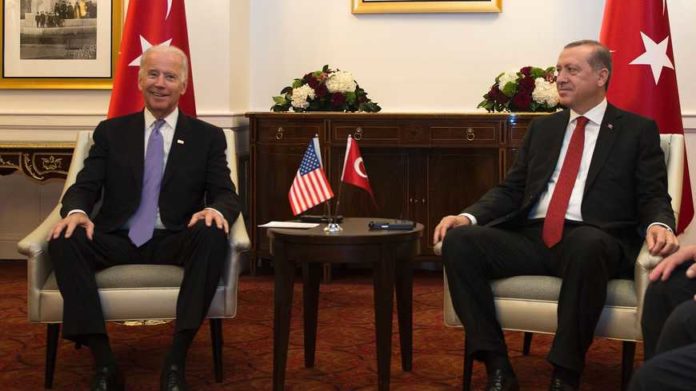By Amberin Zaman
The furor over comments by presumptive US Democratic presidential nominee Joe Biden in December — in which he called Turkish President Recep Tayyip Erdogan an “autocrat” and said he would help his opponents to replace him — shows no signs of abating, even though the former vice president made them so long ago. “You are no match for this nation, you brazen man!” howled the pro-government daily Yeni Safak on August 17. “Know your place,” warned Yeni Akit, another government mouthpiece.
They were taking their cues from Erdogan’s lieutenants. His head of communications Fahrettin Altun said Biden’s words reflected an “interventionist approach” toward Turkey. “No one can attack our national will,” he fumed. Presidential spokesman Ibrahim Kalin vented via Twitter, saying, “The days of ordering Turkey around are over,” and that those who dared do so would “pay the price.”
In his remarks during a round table with New York Times editors on Dec. 16, Biden had also taken aim at President Donald Trump’s order for US special forces to withdraw from Syria’s border with Turkey, paving the way for Turkey’s October 2019 assault against the US-backed Syrian Kurdish People’s Protection Units. “The last thing I would’ve done is yielded to [Erdogan] with regard to the Kurds. The absolute last thing,” Biden said.
All of this will have reinforced Erdogan’s long held view that not only had the Barack Obama administration backed the failed 2016 coup to violently overthrow him but that its decision to support Turkey’s Syrian Kurdish foes militarily was part of the alleged plan.
Embarrassed opposition leaders swiftly denounced Biden, saying they wanted nothing of his help. Kemal Kilicdaroglu, the chairman of the pro-secular main opposition Republican People’s Party, said, “We do not accept even the shadow of any imperial power.” Yet amid all the indignation, feigned or real, some observers are questioning why the video is making the rounds eight months after it was published by the New York Times.








